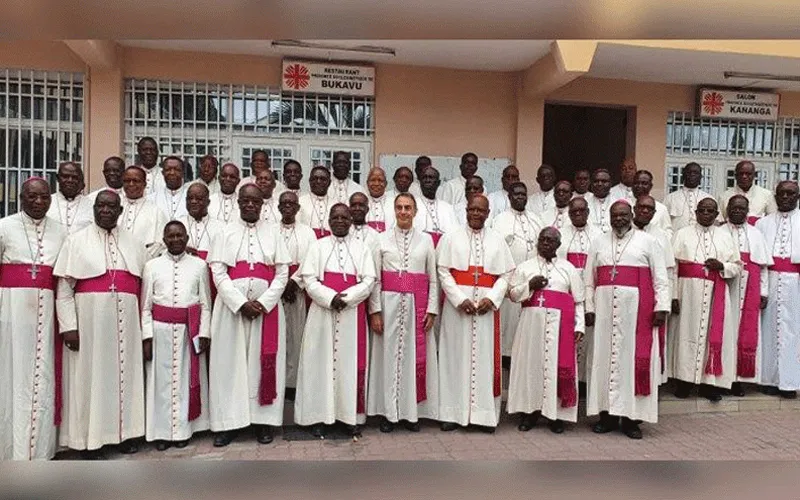Dozens of armed groups are believed to operate in the Eastern region of DRC despite the presence of more than 16,000 UN peacekeepers.
In their April 8 collective statement, Catholic Bishops in DRC note that “for more than two decades, the Eastern part of our country has been particularly affected by armed conflicts and recurrent insecurity, causing death, desolation and displacement of the population.”
“In order to show our affective and effective closeness to our brothers and sisters who are victims of this tragedy, a delegation of Bishops from the Association of Episcopal Conferences of Central Africa (ACEAC) and the National Episcopal Conference of Congo (CENCO) carried out a pastoral mission in the East of the country, particularly in the dioceses of Goma, Butembo-Beni and Bunia, from 14 to 26 January 2021, to listen to and comfort them,” the Catholic Church leaders say.
They add, “The assailants use the weak points of the regular armed forces to achieve their political or religious goals: occupation of land, illegal exploitation of natural resources, unjust enrichment, Islamization of the region in defiance of religious freedom.”
“This whole situation has caused the loss of family life, massive displacement of people and significant loss of property, and has dealt a severe blow to the economy of a region that rightly serves as the country's breadbasket,” the members of CENCO Bishops bemoan in their statement titled “The blood of your brother cries out to me from the ground.”
They say that the perpetrators of such acts “are often armed groups and militiamen, some of whom have an ideology close to 'Satanism.'”
The members of CENCO’s Standing Committee give an account of the situation of insecurity in some part of the Central African nation saying, “The killings in the Beni-Butembo region date back to 2013. In recent days, especially from the last quarter of 2020, it is the Ruwenzori Sector that is most attacked.”
“More than a hundred people have already been killed, including children,” they say, adding that the situation in Bunia and the rest of Ituri Province “is much more complex, marked by recurrent and multifaceted crises of which the population is the main victim.”
“The public authorities are overwhelmed by events. Among the political leaders, some tend to cover up for the troublemakers out of choice or because of pressure from a community leadership,” the Catholic Bishops say.
They continue, “The population has the feeling of being abandoned. The central government's promises to restore peace quickly are numerous, but many have often remained unfulfilled.”








